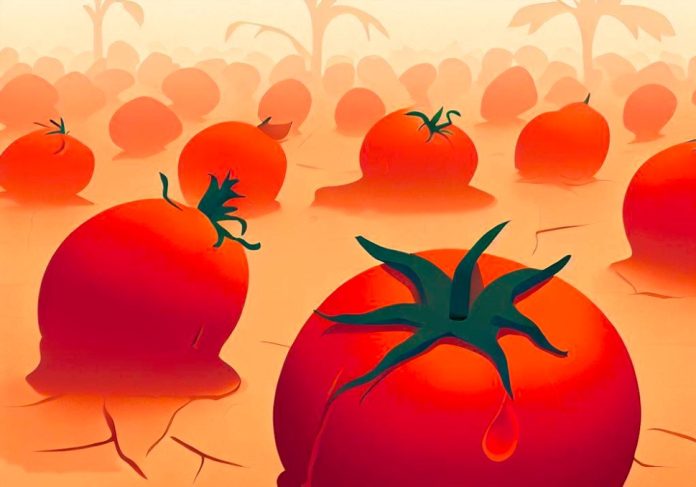News in brief: The scarcity and soaring prices of tomatoes in Nigeria have led people to seek cheaper alternatives, with costs increasing by 400%. Factors such as the tomato ebola disease, fuel subsidy removal, and rainy season have contributed to the scarcity.
Nigerians have begun looking elsewhere for cheaper alternatives to tomatoes, as the producesâ scarcity continues to push its costs to record highs.
A basket of tomatoes, which previously sold for N20,000, now sells for between N90,000 to N100,000, representing a 400% increase within a few weeks.
A number of factors has led to the scarcity and high cost of the produce. These include the notorious tomato ebola, scientifically known as tuta absoluta, fuel subsidy removal which increased transportation costs and rainy season.
As a result of these factors, tomatoes, which are preferred for stews in Nigerian homes and restaurants, are being replaced with cheaper and more readily available options like garden eggplants and carrots, groundnuts, pumpkin, pawpaw, and traditional soups like white soup and banga.
Mrs Helen Omo, a businesswoman in Lagos, to reporters that although tomatoes stew is an important recipe in almost all homes in Nigeria, its scarcity had made some Nigerians to think of alternatives.
“I went to the market yesterday to get some tomatoes for stew and a sizeable bushel, which costs between N2000 and N2500 was being sold for as much as N6500. I did not bother to haggle the price because it was way beyond my budget,” she said.
Umar Adamu, a tomatoes retailer in Nyanya market, said he has stopped retailing tomatoes for some days due to low patronage.
He said customers were not patronising him because of the high cost.
Rukkaya Umar, Chief Executive Officer of Abraks Farm Produce Nigeria Limited, claimed that the major reason for scarcity of tomatoes was high cost of fertiliser.
According to her, many tomato farmers do not grow it because they cannot afford fertiliser, which is critical to its growth. Umar added that reliance on seasonal farming was another reason for the scarcity, as tomatoes was off-season during this period.
Meanwhile, the Tomato and Orchard Producers Association of Nigeria (TOPAN) has acknowledged the scarcity and attributed it to the outbreak of tomato ebola, fewer farmers engaging in tomato cultivation, and adverse weather conditions like high temperatures.
TOPAN President, Bola Oyeleke, added in his statement that the financial constraints that farmers face because of limited access to loans and grants, have further hampered production.



